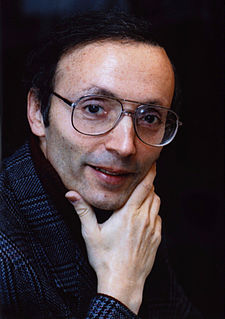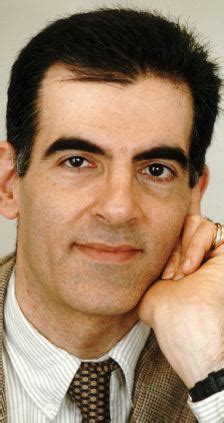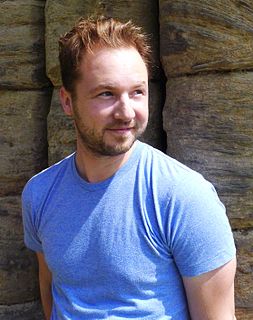A Quote by Pearl S. Buck
Life without idealism is empty indeed. We just hope or starve to death.
Related Quotes
I believe that life is meaningless without hope, which is really what that line is about. Without hope, what are we living for? I wouldn't wanna see where exactly I'd be in five years. I wouldn't wanna know my exact date of death. I wouldn't want to know my exact cause of death. Certain things I just want to allow to take place rather than just have the knowledge beforehand.
I am not an optimist, because I am not sure that everything ends well. Nor am I a pessimist, because I am not sure that everything ends badly. I just carry hope in my heart. Hope is the feeling that life and work have a meaning. You either have it or you don't, regardless of the state of the world that surrounds you. Life without hope is an empty, boring, and useless life. I cannot imagine that I could strive for something if I did not carry hope in me. I am thankful to God for this gift. It is as big as life itself.
And then the spirit brings hope, hope in the strictest Christian sense, hope which is hoping against hope. For an immediate hope exists in every person; it may be more powerfully alive in one person than in another; but in death every hope of this kind dies and turns into hopelessness. Into this night of hopelessness (it is death that we are describing) comes the life-giving spirit and brings hope, the hope of eternity. It is against hope, for there was no longer any hope for that merely natural hope; this hope is therefore a hope contrary to hope.
I hope that I state your case fairly: One of my great fears is misrepresenting you, even to myself, now that you are not here to set me right. The truth is that you did not believe in idealism. All love was suspect; even a saint's was just differed self-interest. And it was impossible to argue without sounding either sentimental or naive. Cynicism has all the smart words on it's side; idealism uses a nursery school dictionary. And you studied early to disguise your childhood pain. But it is not universal.
So to be sick unto death is, not to be able to die-yet not as though there were hope of life; no, the hopelessness in this case is that even the last hope, death, is not available. When death is the greatest danger, one hopes for life; but when one becomes acquainted with an even more dreadful danger, one hopes for death. So when the danger is so great that death has become one's hope, despair is the disconsolateness of not being able to die.
This is the fear: death will come and we have not lived yet. We are just preparing to live. Nothing is ready; life has not happened. We have not known the ecstasy which life is; we have not known the bliss life is; we have not known anything. We have just been breathing in and out. We have been just existing. Life has been just a hope and death is coming near. And if life has not yet happened and death happens before it, of course, obviously, we will be afraid because we would not like to die.
Life rises out of death, death rises out of life; in being opposite they yearn to each other, they give birth to each other and are forever reborn. And with them, all is reborn, the flower of the apple tree, the light of the stars. In life is death. In death is rebirth. What then is life without death? Life unchanging, everlasting, eternal?-What is it but death-death without rebirth?
So thirsty," Jack groaned. "So worried,"said the frog. I hope we don't starve to death." "Yes,"said Jill, "not starving to death would be nice." "So would not thirsting to death," said Jack "Thirsting isn't even a word," said Jill "It isn't?" "No." "Then what's the word?" "I dont know. You just can't." "Oh." This is, of course, the kind of inane conversation that occurs when people are slowly losing their minds.
...we are not without hope of salvation, nor is it at all the right time for us to despair. All our life is a season of repentance, for God 'desires not the death of the sinner', as it is written, 'but that the wicked turn from his way and live' (cf. Ez. 33:11 LXX). For, if there were no hope of turning back, why would death not have followed immediately on disobedience, and why would we not be deprived of life as soon as we sin? For where there is hope of turning back, there is no room for despair.
Idealism does not represent a superfluous expression of emotion, but in truth it has been, is, and will be, the premise for what we designate as human culture...Without his idealistic attitude all, even the most dazzling faculties of the intellect, would remain mere intellect just like outward appearance without inner value, and never creative force....The purest idealism is unconsciously equivalent to the deepest knowledge.




































